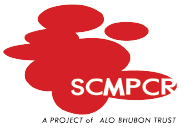Commission envisages tobacco-free Europe by 2040 in leaked cancer plan
The much-awaited ‘Europe’s Beating Cancer Plan’ is being shaped with a strong push on prevention, targeting in particular alcohol and tobacco products, including novel tobacco products like e-cigarettes, EURACTIV has learnt.
An EU-wide plan to combat cancer has remained one of the priorities of Ursula von der Leyen’s Commission when it comes to public health, although the COVID crisis has understandably diverted attention over the past few months.
The actions set out in the plan, which was expected to be unveiled already in December, will aim to support, coordinate and even supplement member states’ efforts at every stage of cancer care, including prevention and quality of life of survivors.
A draft of the ‘Europe’s Beating Cancer Plan’ obtained by EURACTIV has confirmed that it will be based on four key pillars – prevention, early diagnosis, treatment, and follow-up care – with seven flagship initiatives and a number of supporting actions.
